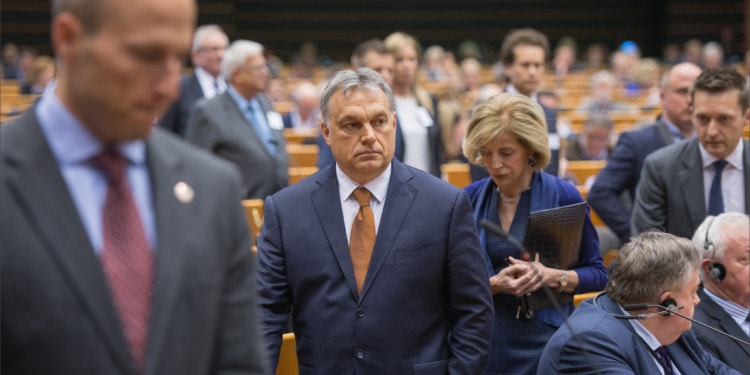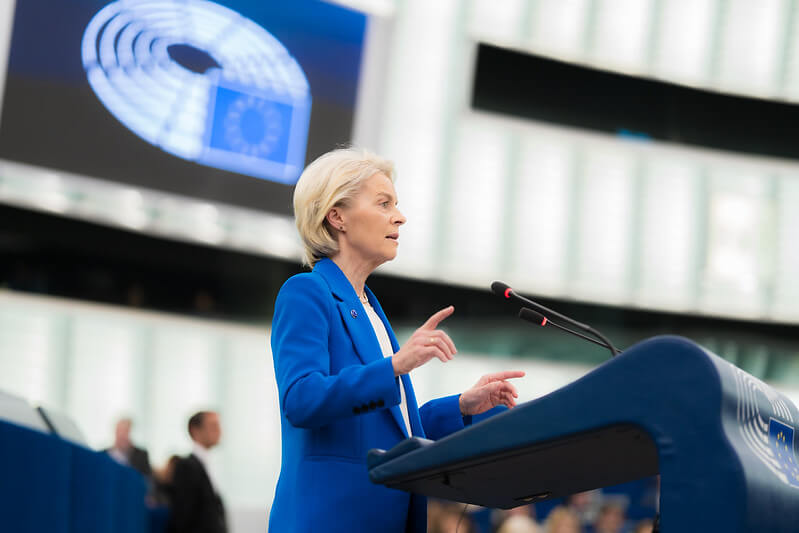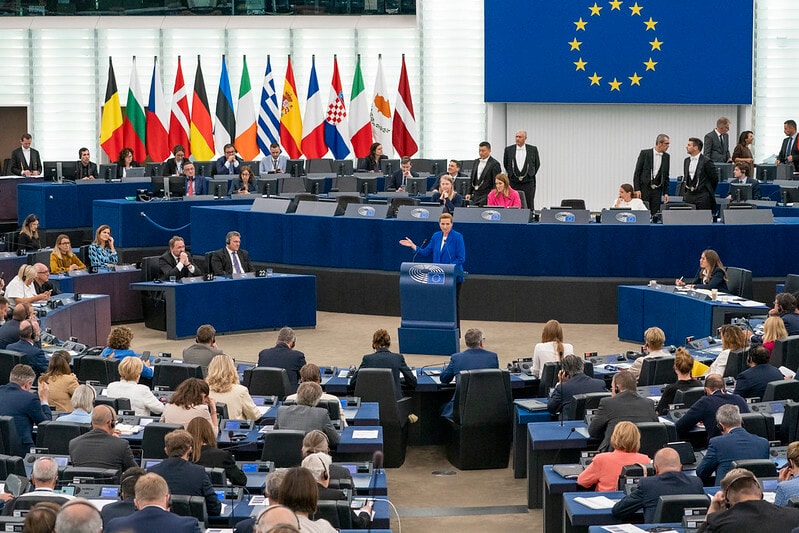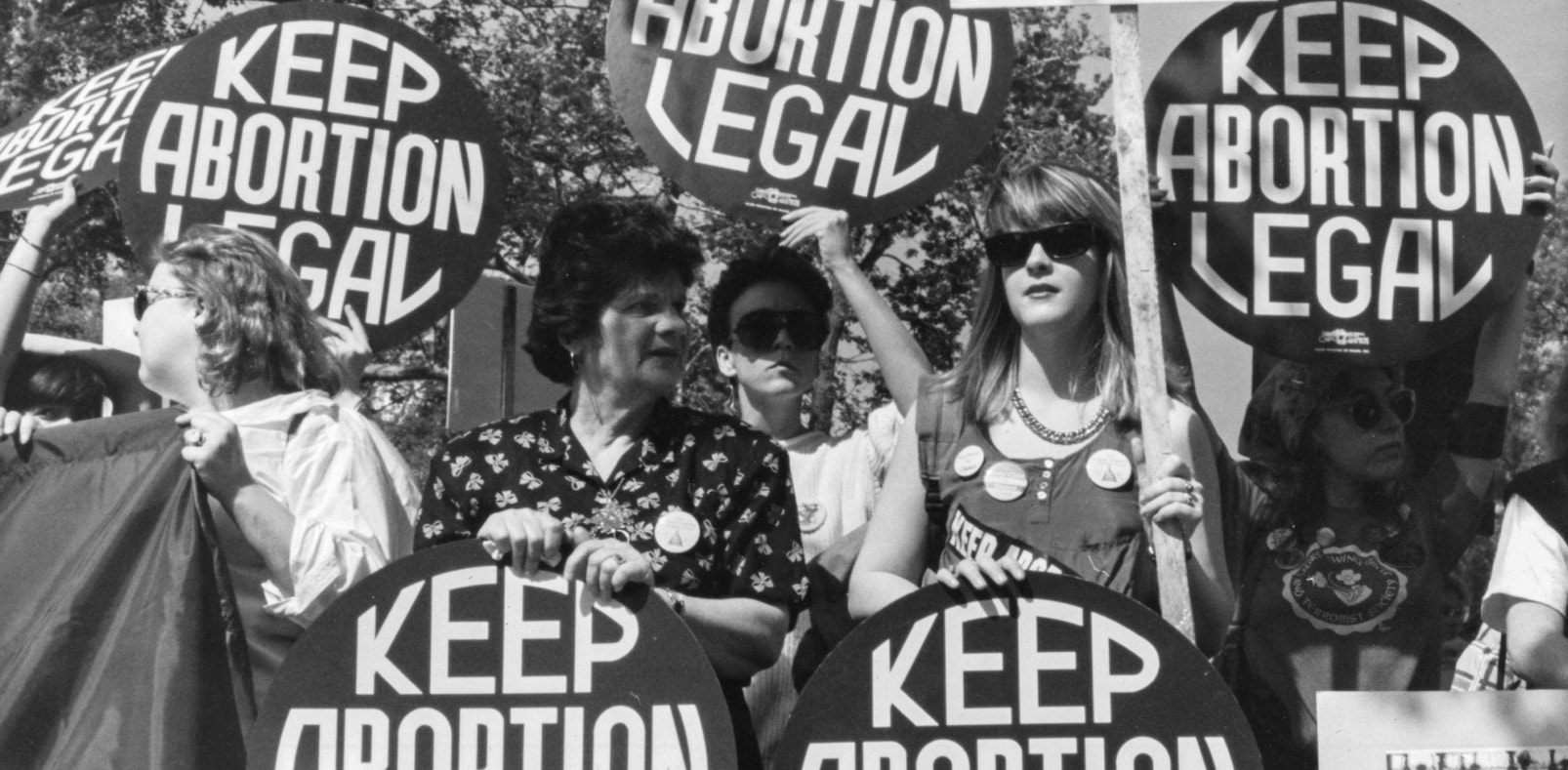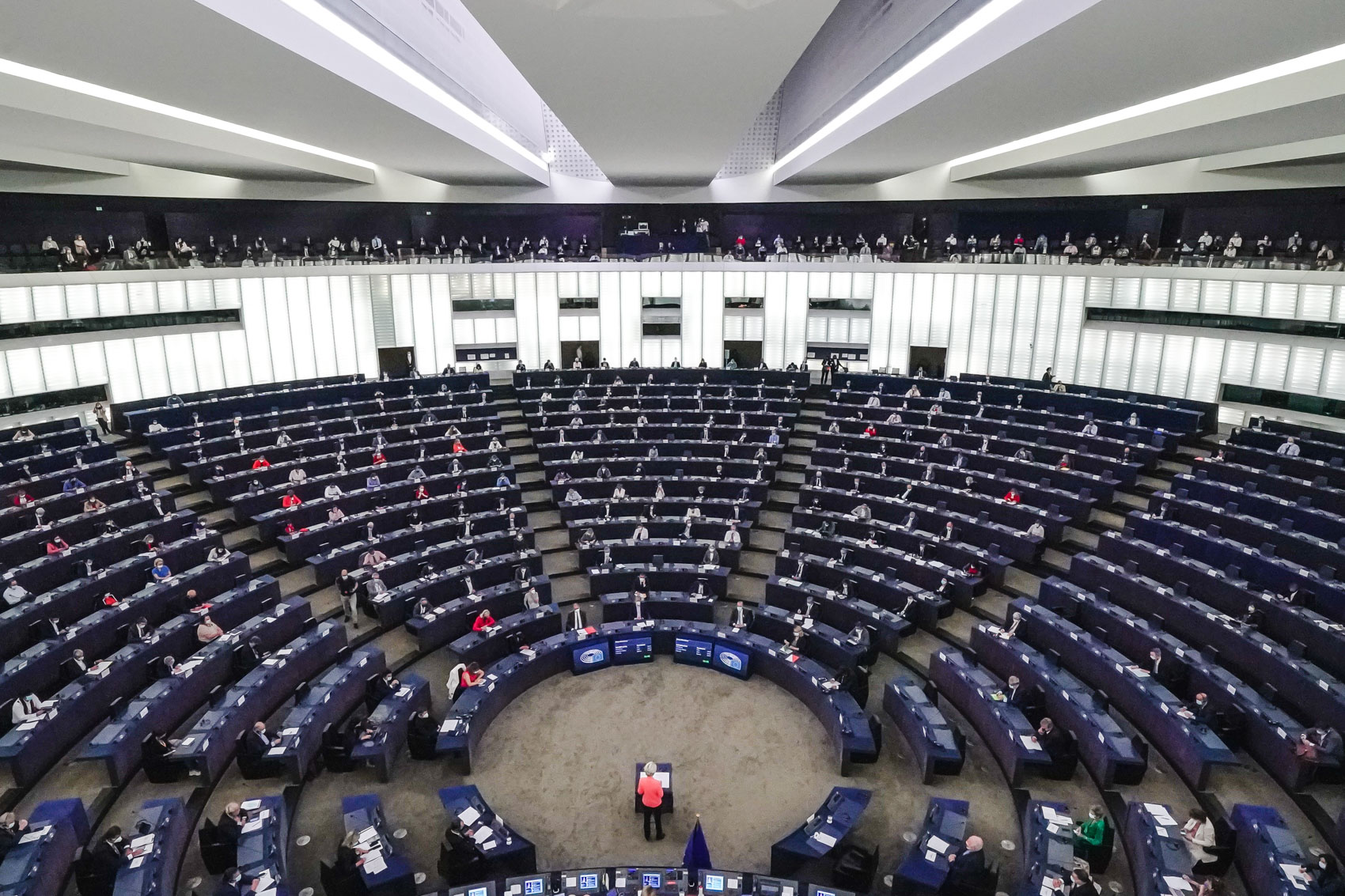Hungary under Victor Orbán’s government is no longer a democracy and should instead be considered an “electoral autocracy,” declared the European Parliament in a report issued September 15.
This motion was passed with 433 votes in favour, 123 against, and 28 abstentions. As Gwendoline Delbos-Corfield, the French MEP who drafted the report, confirmed, such an overwhelming majority of MEPs supporting a resolution is “unprecedented” in EU Parliament.
Delbos-Corfield also highlighted that it was “more urgent than ever for the parliament to take this stance, considering the alarming rate at which the rule of law is backsliding in Hungary.”
The issuing of this report, whilst without any practical effect, highlights the union’s concerns regarding corruption and infringement of democratic values. It is intended to pressure EU authorities to stop funding cohesion programmes contributing to breaches of the rule of law, and more closely regulate any funding Hungary does receive to ensure it is not misused.
Today, @Europarl_EN has adopted by a huge majority our report on #Article7 & the #RuleOfLaw situation in Hungary 🇭🇺.
Conclusions are clear: one of our 🇪🇺 member states is no longer a democracy ⤵️ pic.twitter.com/A85vmo1rJ6
— Gwendoline Delbos-Corfield (@GDelbosCorfield) September 15, 2022
Concerns surrounding the level of democracy in Hungary are longstanding and growing, as the country seems to be being steered consistently further towards a right-wing autocracy.
Just this week, Viktor Orbán, the country’s far right prime minister, issued a new decree requiring Hungarian women to “listen to the foetal heartbeat” before being given access to an abortion.
Noá Nógradí, a member of the Hungarian women’s rights organisation Patent, describes this new addition to the regulations as part of a “series of small steps” towards the end goal of outlawing abortions entirely.
This development is only the latest in a long line of concerns that have accumulated since Orbán was elected in 2010.
The following are the main areas of democracy and policy that MEPs believe are under threat in Hungary:
- Constitutional and judiciary systems
- Freedom of expression, particularly within the media
- Academic freedom
- Freedom of religion
- Right to equal treatment, particularly within minority groups
The MEP’s new motion in many ways builds upon the Article 7 procedure – used to mark concerns that a country is at risk of breaking the bloc’s core values – which the EU triggered against Hungary in 2018.
Related Articles: European Law Under Attack from Hungary and Poland | Elections in Europe Under the Shadow of Russia: Hungary
Given this process was allowed to stall, MEPs are now criticising the EU institutions for facilitating such a backsliding of democracy within a member state.
Financial Corruption and Hungary’s funding battle with the EU
Every year Hungary receives over 6 billion in EU capital, and they are currently vying for an extra €4.64bn in Covid recovery funds.
However, allegations have been made that Orbán and his party have misused EU money in the past, enriching those closest to them and further instilling autocracy in Hungary, rather than putting the funds towards the EU’s intended uses.
In light of this accusation, and the concerns regarding political and social freedom expressed in the European Parliament’s report, it is expected that the Commission will propose cutting 70% of Hungary’s cohesion funds on Sunday.
It is hoped that this will be managed closely and that “cosmetic changes” within the country will not result in a return to the normal levels of funding.
To this end, Delbos-Corfield recommends that the Commission “not be fooled by pretended reforms” and instead “be serious on the real changes we need.”
https://twitter.com/RadioGenova/status/1570669014195765251
Kinga Gál, a Hungarian MEP and member of the ruling Fidesz party, has responded to this new report by labelling it “stigmatisation, incitement, and problem-making.”
This is echoed in the country’s chief spokesman Zoltán Kovács’ statement that the Parliament “would do better to focus on energy prices that have tripled and quadrupled due to the failed sanctions,” alluding to the EU’s restrictive measures against Russia.
A small group of far-right MEPs from Spain, France, Poland, and Italy also formed part of the minority opposing the new report.
The Italian MEPs are perhaps of most concern as one is member of Fratelli d’Italia, the party currently projected to win Italy’s general election on September 25, which raises questions as to whether Italy will soon be following in Hungary’s footsteps.
Editor’s Note: The opinions expressed here by Impakter.com columnists are their own, not those of Impakter.com. — In the Featured Photo: Hungarian Prime Minister Viktor Orbán Photo Credits: European Union 2017- European Parliament


